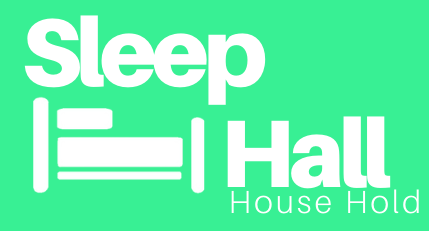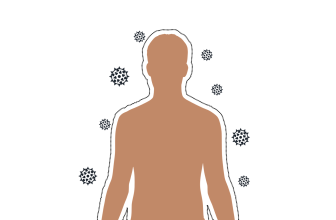sleephall.com is a participant in the Amazon Services LLC Associates Program, an affiliate advertising program designed to provide a means for sites to earn advertising fees by advertising and linking to Amazon.com so we may earn a commission when you use the links on this page to buy products , thanks.
Introduction
Sleep is essential for the human body to function correctly. It is a vital process that
helps us repair and restore our body and mind. However, many people underestimate the
importance of getting a good night’s sleep regularly. Poor sleep can have significant negative
effects on our health, including mental and physical health. In this article, we will explore the
risks of poor sleep and the impact it can have on your health.
Health Risks Associated with Poor Sleep
- Increased Risk of Chronic Diseases: Sleep deprivation can increase the risk of developing
chronic diseases such as heart disease, diabetes, obesity, and high blood pressure.
According to a study published in the Journal of the American Medical Association,
individuals who sleep less than six hours per night have a higher risk of developing these
conditions than those who get seven to eight hours of sleep each night. Additionally, poor
sleep can affect our immune system, making us more vulnerable to infections and
illnesses. - Mental Health Issues: Poor sleep can have a significant impact on mental health, leading
to depression, anxiety, and other mood disorders. Studies have shown that individuals
who suffer from insomnia are more likely to develop depression or anxiety. Lack of sleep
can also affect cognitive function, leading to difficulty with concentration, memory, and
decision-making skills. - Increased Risk of Accidents: Fatigue due to poor sleep can increase the risk of accidents,
both on the road and in the workplace. According to the National Highway Traffic Safety
Administration, drowsy driving is responsible for 100,000 accidents each year, resulting
in 1,500 deaths and 71,000 injuries. In the workplace, fatigue can lead to an increased
risk of accidents and injuries due to impaired judgment and slower reaction times. - Decreased Quality of Life: Poor sleep can have a negative impact on our quality of life,
leading to decreased productivity, irritability, and a lack of motivation. According to a
study published in the journal Sleep Health, individuals who experience poor sleep
quality report lower levels of overall satisfaction with their lives.
Factors That Contribute to Poor Sleep
- Sleep Disorders: Sleep disorders such as sleep apnea, restless leg syndrome, and
insomnia can lead to poor sleep quality and sleep deprivation. These disorders require
proper diagnosis and treatment by a healthcare professional to improve sleep quality. - Lifestyle Habits: Lifestyle habits such as drinking alcohol, smoking, and using electronic
devices before bedtime can negatively impact sleep quality. Additionally, a lack of
physical activity and poor diet can contribute to poor sleep. - Environmental Factors: Environmental factors such as noise, light, and temperature can
also affect sleep quality. A noisy environment can lead to difficulty falling asleep and
staying asleep, while too much light can interfere with the production of melatonin, a hormone that regulates sleep. A temperature that is too hot or too cold can also interfere with sleep quality.
Improving Sleep Quality
- Sleep Hygiene: Establishing good sleep hygiene habits such as keeping a regular sleep
schedule, avoiding electronic devices before bedtime, and creating a comfortable sleep
environment can improve sleep quality. - Seek Medical Help: Individuals who suffer from sleep disorders should seek medical help
to properly diagnose and treat the condition. - Lifestyle Changes: Lifestyle changes such as regular exercise, healthy eating habits, and
avoiding substances that interfere with sleep can also improve sleep quality.
Conclusion
Poor sleep can have significant negative effects on our health, including an
increased risk of chronic diseases, mental health issues, accidents, and a decreased quality of life.
Understanding the risks of poor sleep and the factors that contribute to it can help individuals
take steps to improve sleep quality
Product Recommendation
1 White Noise Machine – A white noise machine can be a great tool for those who struggle
with background noise while trying to sleep. They produce a consistent and soothing
sound that can help mask outside noise and lull you into a peaceful sleep.

2. Weighted Blanket – Weighted blankets are designed to provide gentle pressure on the
body, which can help reduce anxiety and promote relaxation. This can lead to a deeper
and more restful sleep.

3. Sleep Tracker – A sleep tracker can help you better understand your sleep patterns and
identify potential issues that may be impacting the quality of your sleep. It can provide
insight into factors such as how long you sleep, how often you wake up during the night,
and the quality of your sleep.

4. Aromatherapy Diffuser – Essential oils such as lavender and chamomile can have calming
effects on the body and mind, promoting relaxation and restful sleep. An aromatherapy
diffuser can be a great way to incorporate these scents into your bedtime routine.

5. Sleep Mask – A sleep mask can help block out light and create a dark environment that is
conducive to sleep. This can be especially helpful for those who have trouble sleeping in
brightly lit rooms.

Scientific References
- Mental health disorders:
o Anxiety disorders: sleep problems can be both a cause and a symptom of anxiety
disorders. (Reference: https://www.ncbi.nlm.nih.gov/pmc/articles/PMC5806574/)
o Depression: people with depression often experience sleep disturbances such as
insomnia and hypersomnia. (Reference:
https://www.ncbi.nlm.nih.gov/pmc/articles/PMC3181883/) - Cardiovascular diseases:
o Hypertension: sleep deprivation and poor quality sleep have been linked to high
blood pressure. (Reference:
https://www.ncbi.nlm.nih.gov/pmc/articles/PMC5519894/)
o Coronary heart disease: poor sleep can contribute to the development of coronary
heart disease. (Reference:
https://www.ncbi.nlm.nih.gov/pmc/articles/PMC3594416/) - Obesity:
o Poor sleep can disrupt hormones that regulate appetite, leading to an increase in
appetite and food intake, which can result in weight gain and obesity. (Reference:
https://www.ncbi.nlm.nih.gov/pmc/articles/PMC3632337/) - Diabetes:
o Sleep deprivation and poor sleep quality can affect glucose metabolism and
increase the risk of developing type 2 diabetes. (Reference:
https://www.ncbi.nlm.nih.gov/pmc/articles/PMC2884987/) - Immune function:
o Lack of sleep or poor sleep can weaken the immune system, making individuals
more susceptible to infections and illnesses. (Reference:
https://www.ncbi.nlm.nih.gov/pmc/articles/PMC3256323/) - Accident risk:
o Sleep deprivation and poor sleep quality can impair cognitive function, leading to
an increased risk of accidents and injuries. (Reference:
https://www.ncbi.nlm.nih.gov/pmc/articles/PMC1739867/) - Impaired memory and learning:
o Sleep is essential for memory consolidation and learning. Lack of sleep or poor
sleep quality can impair these functions. (Reference:
https://www.ncbi.nlm.nih.gov/pmc/articles/PMC2656292/) - Mood and emotional regulation:
o Poor sleep can affect emotional regulation, making individuals more irritable and
easily stressed. (Reference:
https://www.ncbi.nlm.nih.gov/pmc/articles/PMC4112801/) - Reduced quality of life:
o Chronic sleep deprivation and poor sleep quality can negatively impact an
individual’s quality of life, affecting mood, relationships, and daily activities.
(Reference: https://www.ncbi.nlm.nih.gov/pmc/articles/PMC3065172/)
Overall, poor sleep can have a significant impact on an individual’s physical and mental health,
as well as their overall well-being. It is essential to prioritize good sleep hygiene and seek
professional help if sleep disturbances persist







